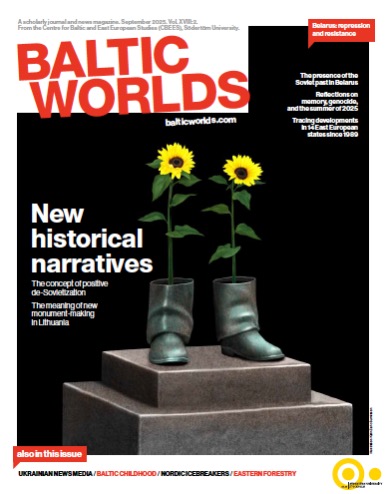+ Jóhann Páll Árnason and Björn Wittrock (eds.), Nordic Paths to Modernity, New York: Berghahn Books 2012.
+ Bjørn Magnus Berge and Anders Björnsson (eds.), Skandinaviska vägval, [Scandinavian crossroads] Stockholm: Atlantis 2008.
+ Max Engman and Nils Erik Vilstrand (eds.), Maktens mosaik:, Enhet, särart och självbild i det svenska riket [The mosaic of power: Unity, peculiarity, and identity in the Swedish realm], Stockholm & Helsinki: Atlantis and the Swedish Literary Society in Finland 2008.
+ Rasmus Glenthøj, Skilsmissen: Dansk og norsk identitet før og efter 1814 [The divorce: Danish and Norwegian identity before and after 1814], Odense: University Press of Southern Denmark 2012.
+ Henrik Meinander, Finlands historia [The history of Finland] Stockholm: Atlantis 2006.
Niels Kayser Nielsen, Bonde, stat og hjem: Nordisk demokrati og nationalisme — fra pietismen til 2. Verdenskrig [Farmer, state and home: Nordic democracy and nationalism, from pietism to the Second World War], Århus: Aarhus University Press 2009.
+ Gunnar Wetterberg, The United Nordic Federation, Copenhagen: Nordic Council of Ministers 2010.

 Issue 2025, 2:
Issue 2025, 2: